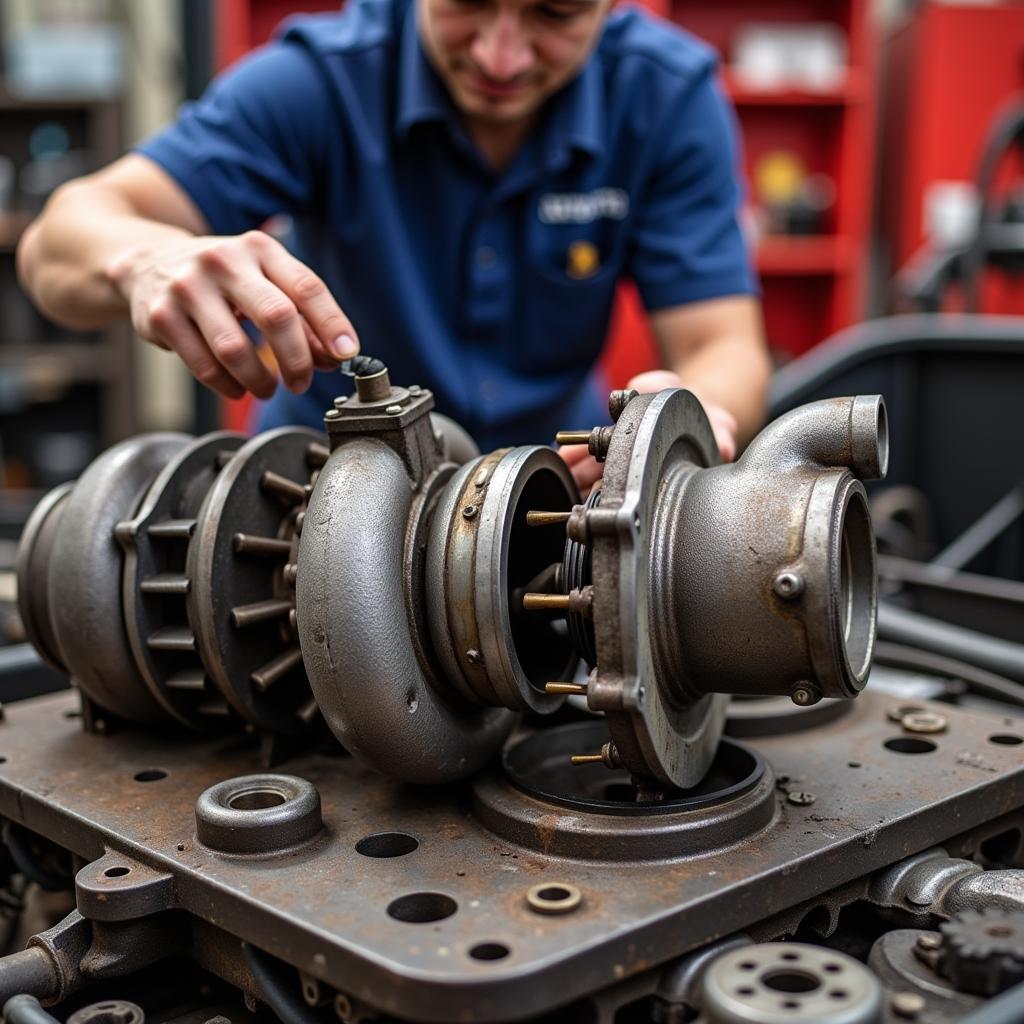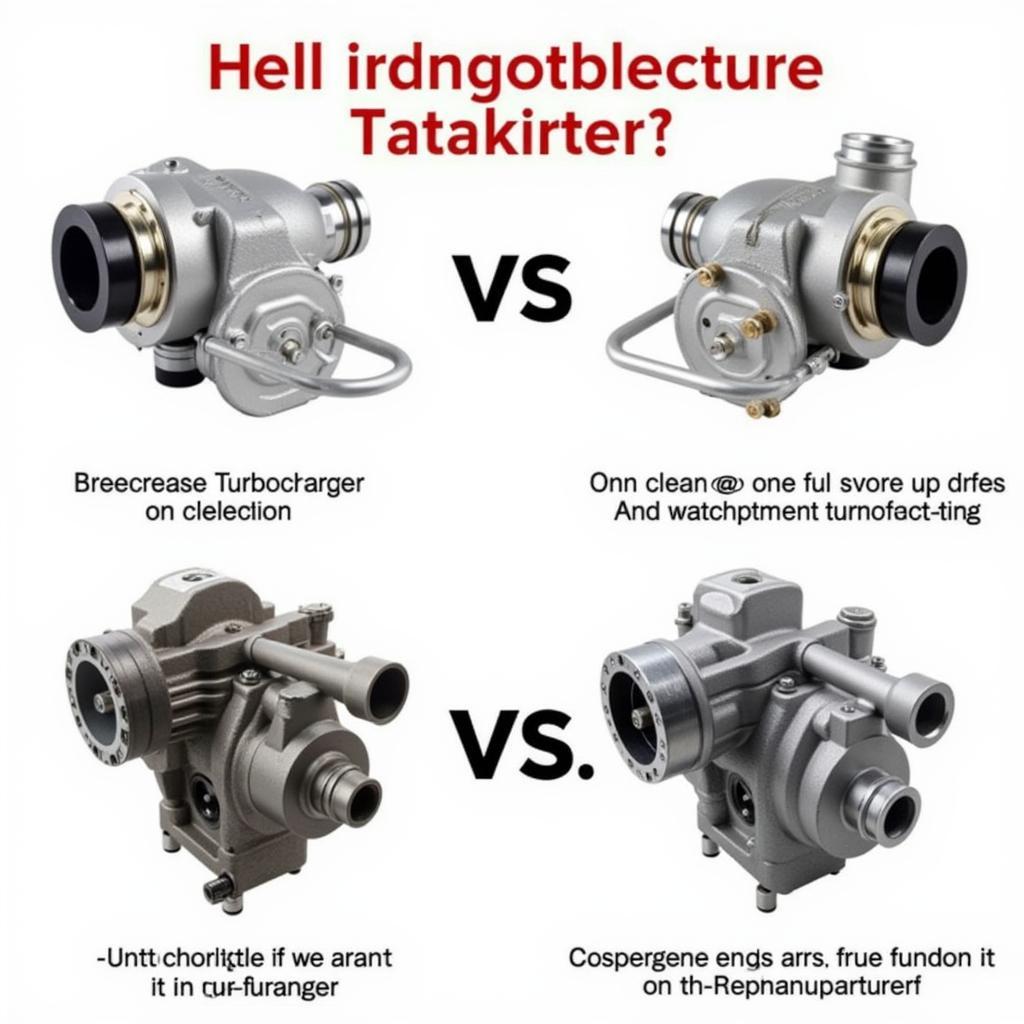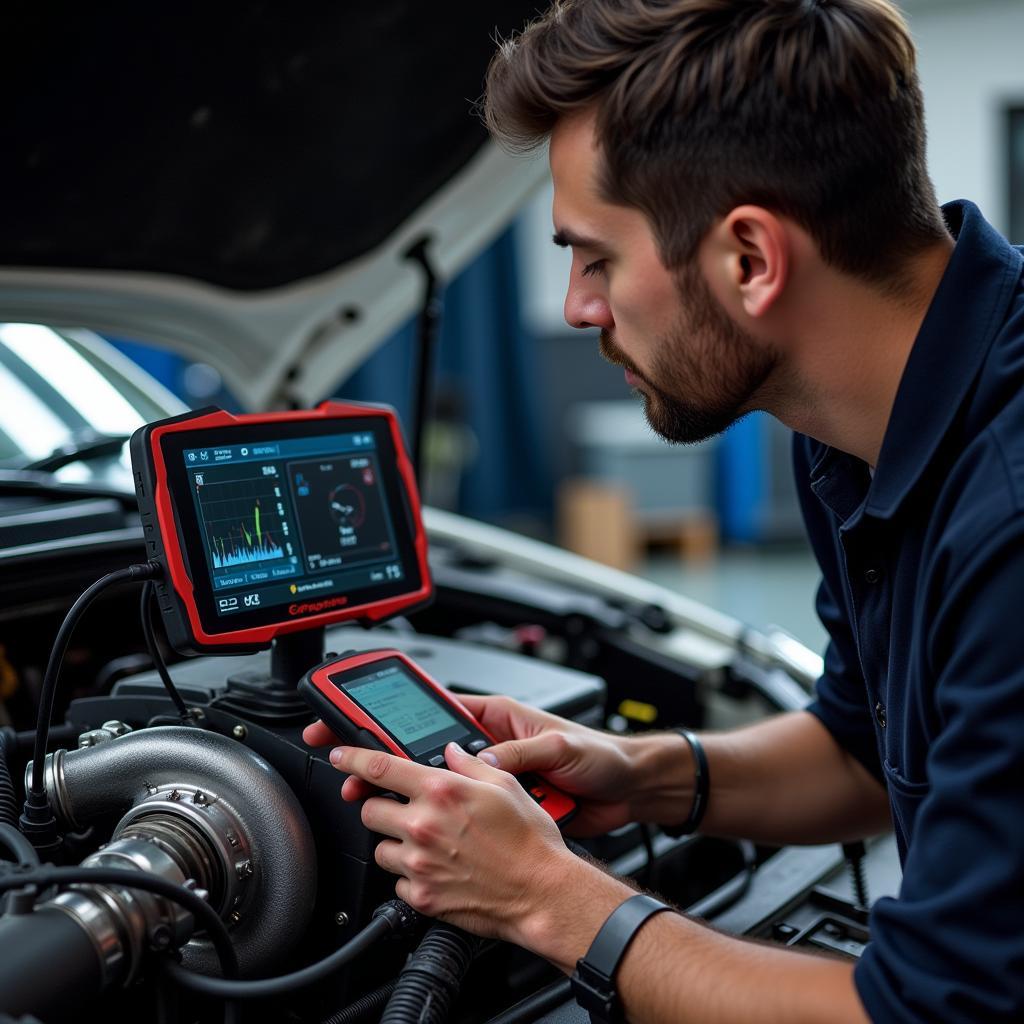Turbocharger failure can be a costly headache for car owners. The immediate thought is often complete replacement, but Can We Repair Cars Turbo And Not Replace? In many cases, the answer is yes. Understanding the intricacies of turbo repair versus replacement will empower you to make informed decisions about your vehicle’s forced induction system.
Understanding Turbocharger Problems
Turbochargers are complex systems operating under extreme conditions. High temperatures, rotational speeds, and oil lubrication are all critical factors that can contribute to wear and tear. Common turbocharger problems include worn bearings, damaged seals, a cracked compressor housing, or foreign object damage. Identifying the specific issue is the first step in determining whether repair is a viable option.
A whistling noise is often the first sign of a problem. This could indicate a boost leak from a cracked hose or a failing seal within the turbo itself. Other symptoms include a loss of power, excessive oil consumption, or blue/black smoke from the exhaust.
 Assessing Turbocharger Damage
Assessing Turbocharger Damage
Turbo Repair: A Viable Option
Repairing a turbocharger is often a more cost-effective solution compared to replacement, especially if the damage is isolated to specific components. For instance, replacing worn bearings or seals can restore the turbocharger’s functionality without requiring a complete overhaul. Specialized turbo repair shops have the expertise and equipment to diagnose and address these issues.
However, the feasibility of repair depends heavily on the extent of the damage. A severely damaged compressor wheel, a cracked turbine housing, or extensive shaft play might necessitate a complete replacement. In such cases, attempting a repair could be a temporary fix, ultimately leading to further problems down the line.
Turbo Replacement: When Necessary
While repairing a turbo is often preferred, there are situations where replacement is the only practical solution. Extensive internal damage, severe corrosion, or obsolete parts can make repair uneconomical or impossible. In these scenarios, replacing the turbocharger with a new or remanufactured unit is the best course of action.
 Comparing New and Remanufactured Turbos
Comparing New and Remanufactured Turbos
Can a Turbo Be Rebuilt?
Yes, a turbo can often be rebuilt. Rebuilding involves disassembling the turbocharger, cleaning all components, inspecting for wear and tear, and replacing damaged parts. This is a more extensive process than a simple repair but can still be significantly less expensive than buying a new unit. A rebuilt turbo, when done correctly, can offer comparable performance and longevity to a new one.
Choosing Between Repair and Replacement
The decision between repairing and replacing a turbo depends on several factors, including the extent of the damage, the cost of repair versus replacement, the age and mileage of the vehicle, and the availability of parts. Consulting with a qualified mechanic specializing in turbochargers is crucial for making the right choice.
“A thorough inspection is paramount,” says John Miller, a certified master automotive technician with over 20 years of experience. “Don’t jump to conclusions. A proper diagnosis will save you time and money in the long run.”
Diagnosing Turbo Issues
Accurate diagnosis is critical for determining the best course of action. This often involves a visual inspection, checking for leaks, listening for unusual noises, and using specialized diagnostic tools to assess the turbocharger’s performance.
 Turbocharger Diagnostic Tools
Turbocharger Diagnostic Tools
Conclusion
So, can we repair cars turbo and not replace? Absolutely. However, the decision to repair or replace depends on a careful assessment of the damage and the overall cost-benefit analysis. By understanding the factors involved, you can make an informed decision that keeps your car running smoothly and your budget in check. Remember to consult with a qualified mechanic for professional advice tailored to your specific situation.
FAQ
- How much does it cost to repair a turbo? The cost varies depending on the specific issue and the make and model of your car.
- How long does a turbo repair typically take? A simple repair can be completed in a few hours, while a rebuild can take a day or two.
- What are the signs of a failing turbo? Common signs include a whistling noise, loss of power, excessive oil consumption, and blue/black smoke from the exhaust.
- Can I drive my car with a bad turbo? It’s not recommended. Driving with a damaged turbo can cause further damage to your engine.
- How can I prevent turbo failure? Regular maintenance, including oil changes and air filter replacements, is crucial for preventing turbo problems.
- What is the lifespan of a turbocharger? With proper maintenance, a turbocharger can last the lifetime of the vehicle.
- Are rebuilt turbos reliable? Yes, when rebuilt correctly by a reputable shop, they can be just as reliable as a new unit.
Common Turbo Failure Scenarios
- Oil Starvation: Insufficient oil supply can lead to rapid wear and tear of turbocharger bearings.
- Foreign Object Damage: Debris entering the turbo can damage the compressor wheel or turbine blades.
- Overboosting: Exceeding the turbo’s designed boost pressure can cause excessive stress and damage.
- Carbon Buildup: Carbon deposits can restrict airflow and reduce turbo efficiency.
Related Articles and Resources
- Understanding Turbocharger Technology
- Choosing the Right Turbocharger for Your Car
- Maintaining Your Turbocharger for Optimal Performance
Need help with your turbo? Contact us via WhatsApp: +1(641)206-8880, Email: [email protected]. We have a 24/7 customer support team ready to assist you. “Don’t hesitate to reach out. We’re here to help,” adds Maria Rodriguez, our lead customer service representative.


